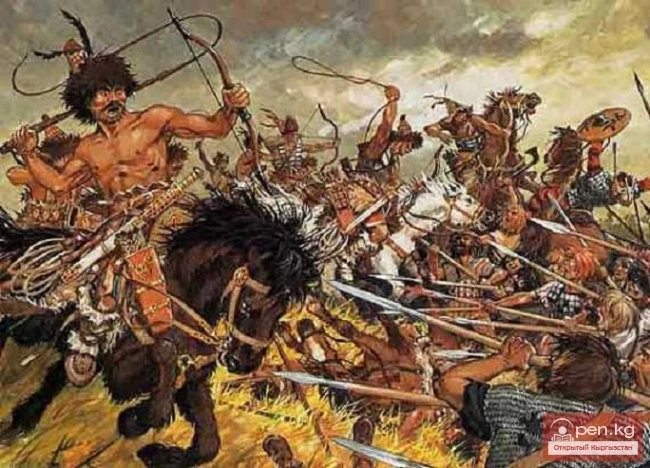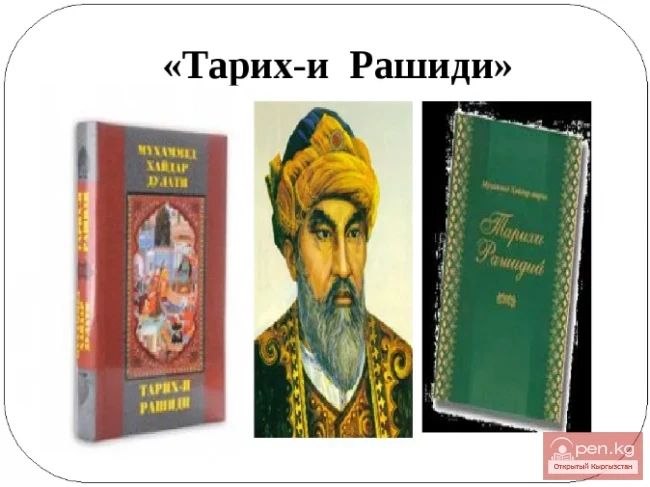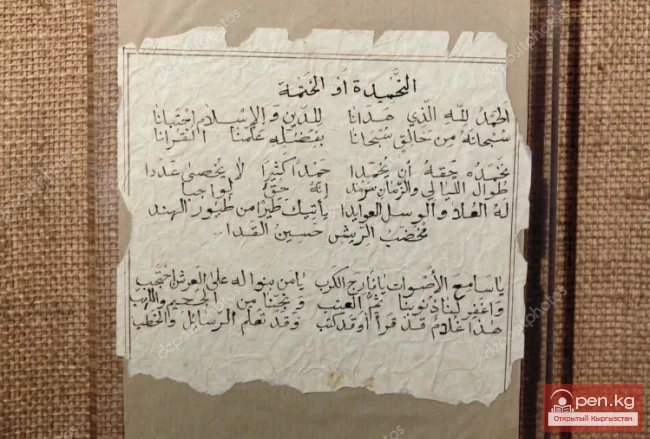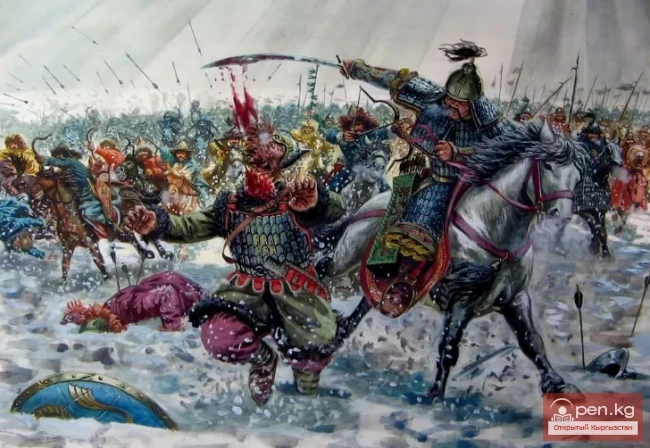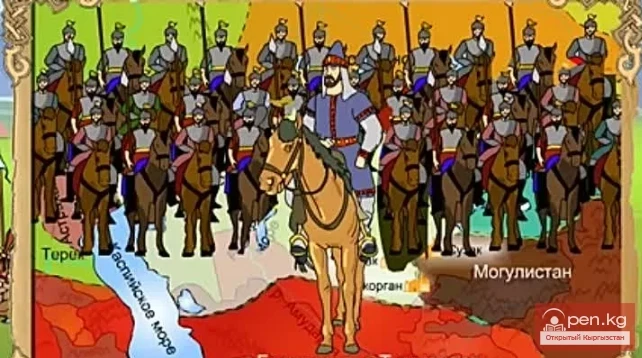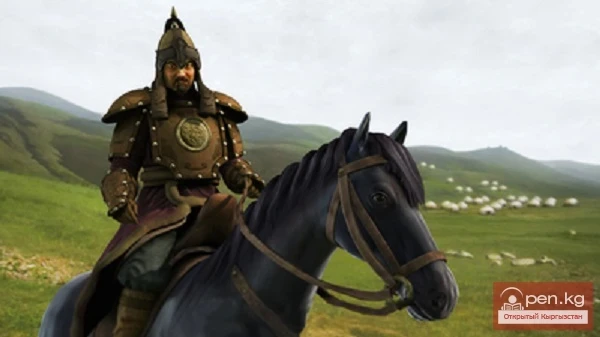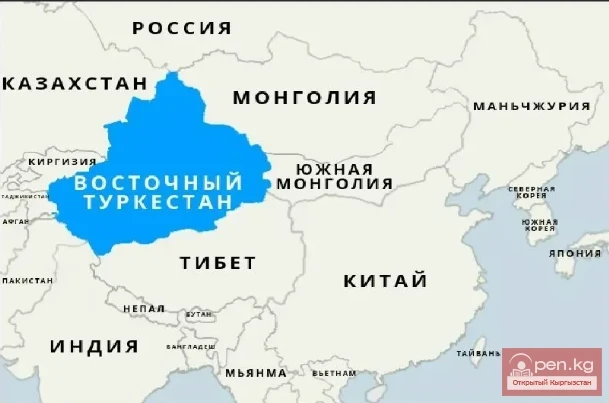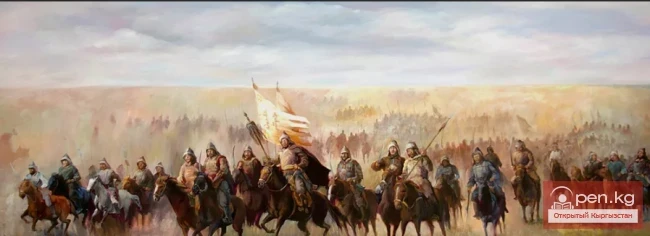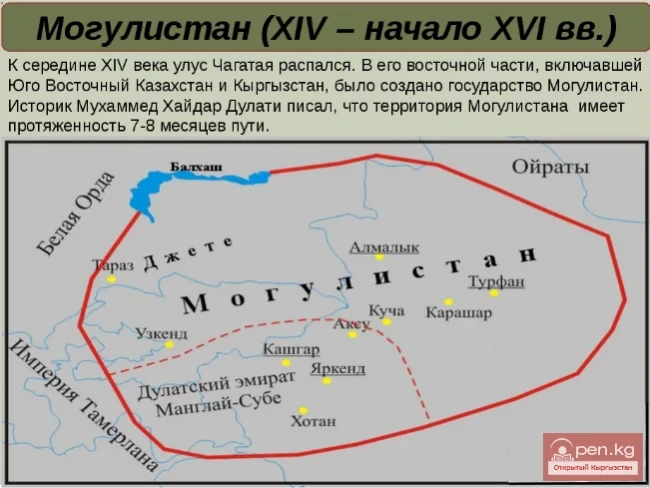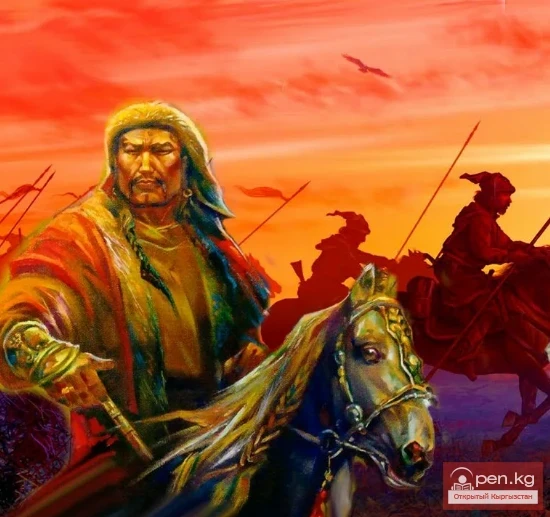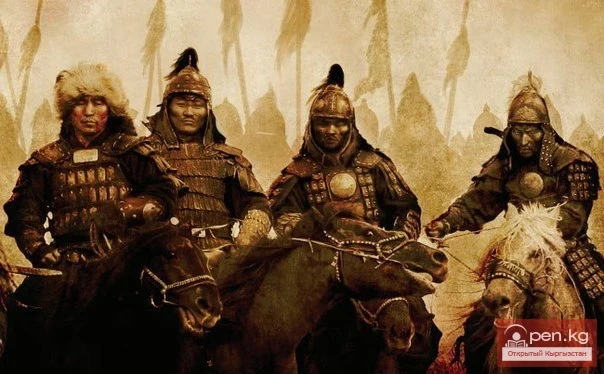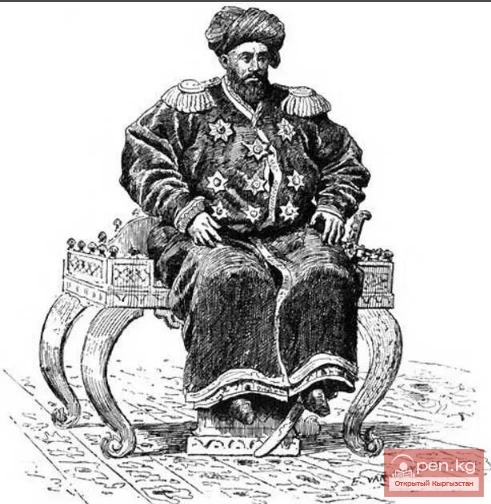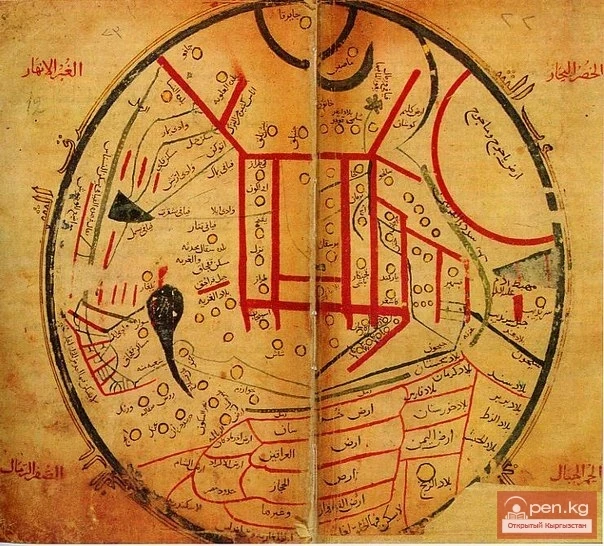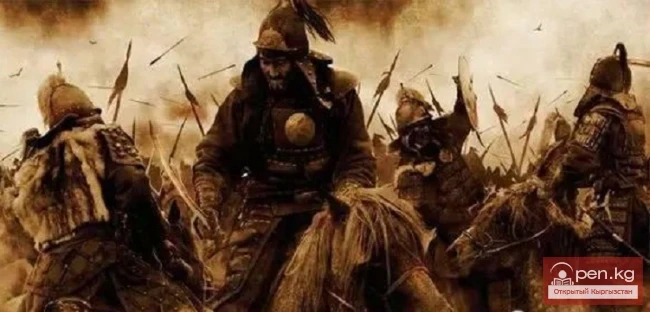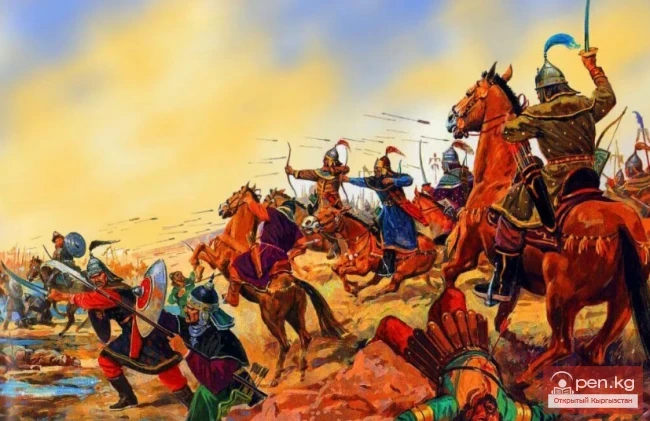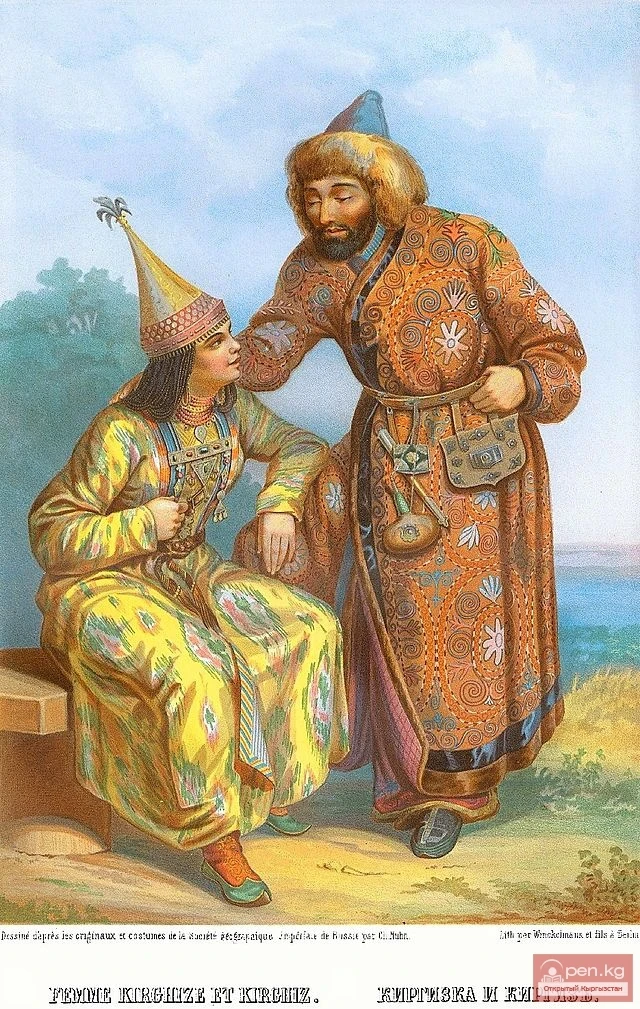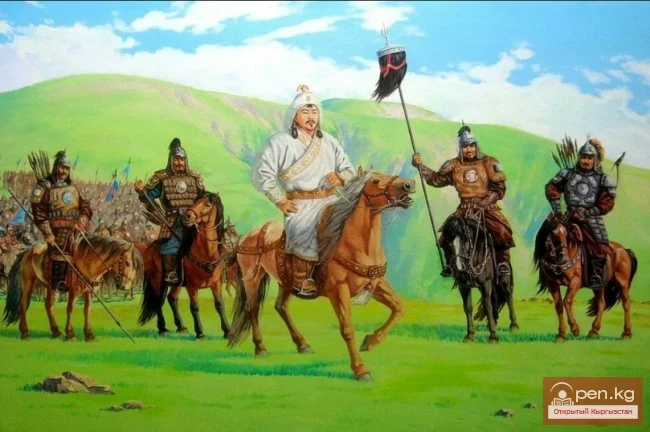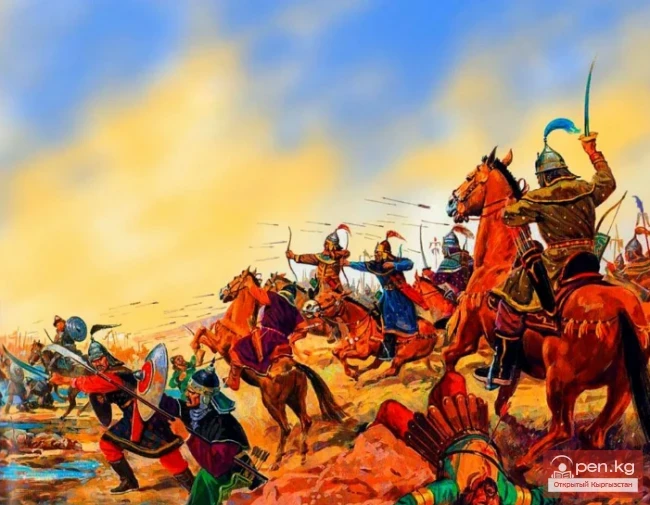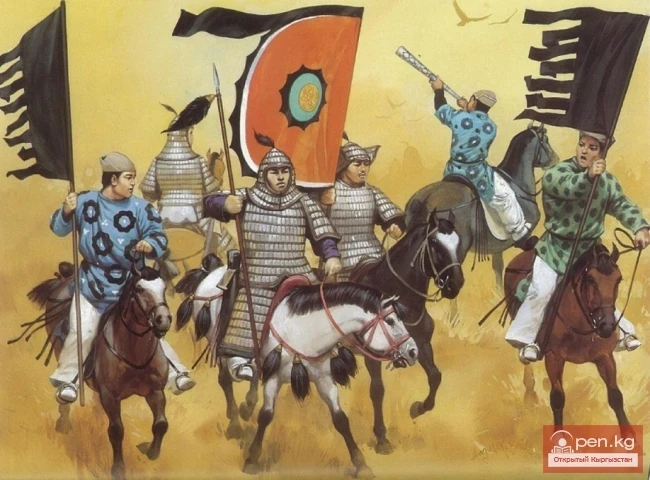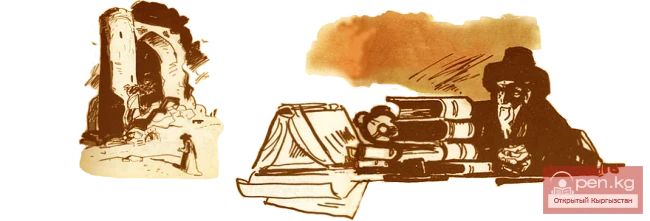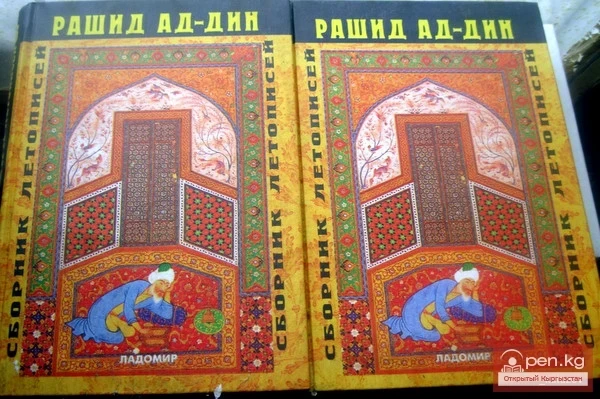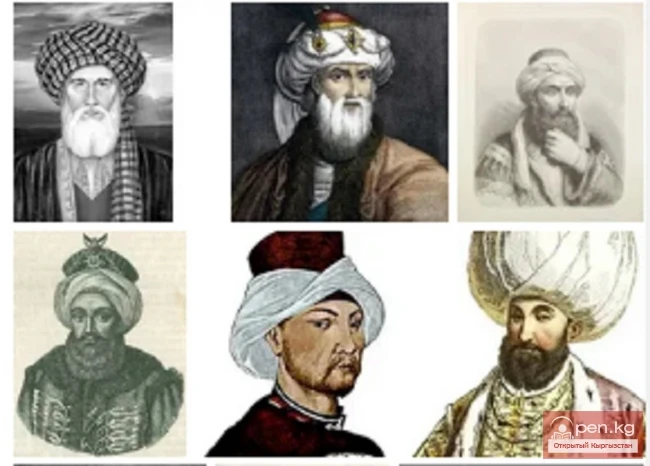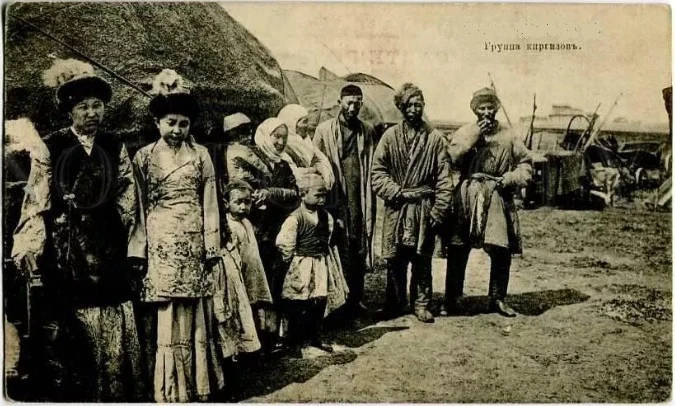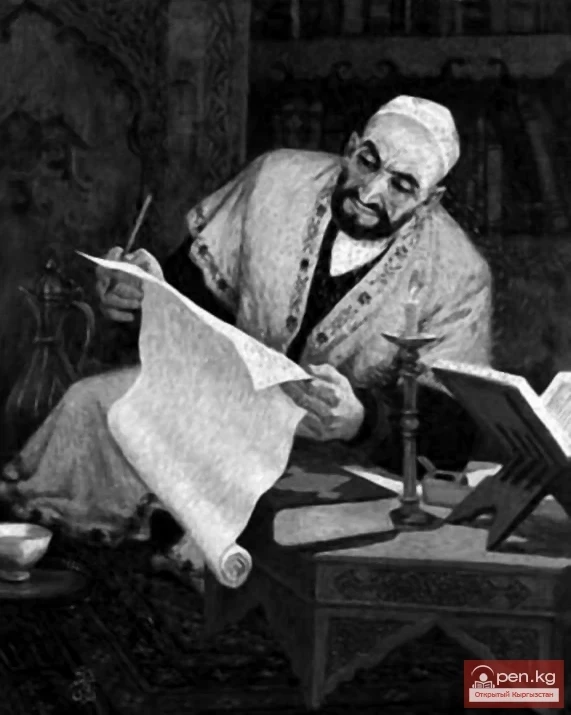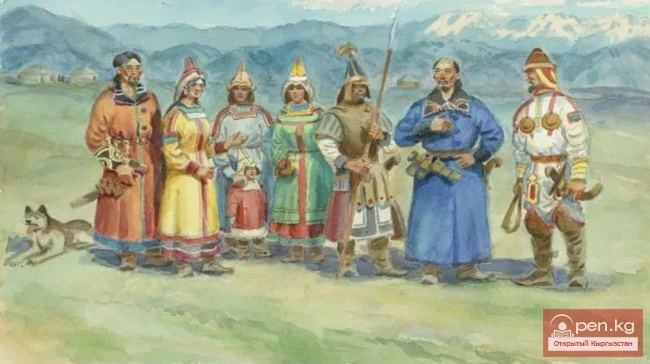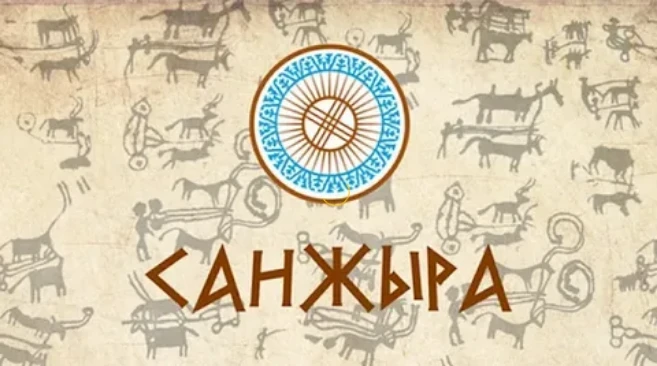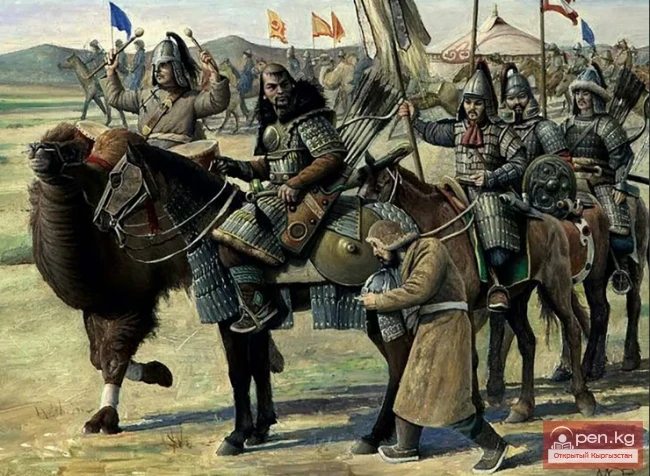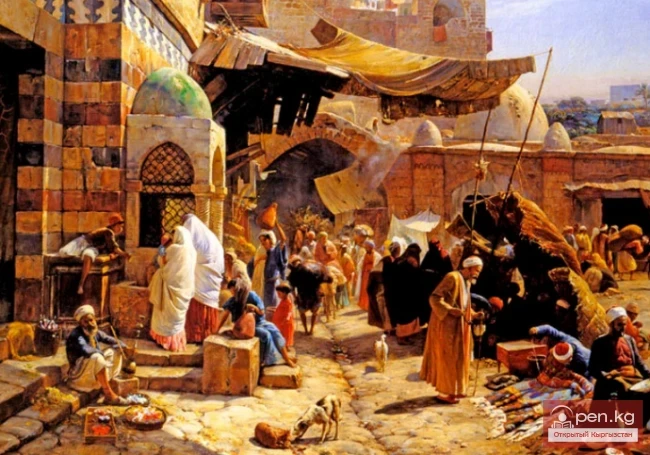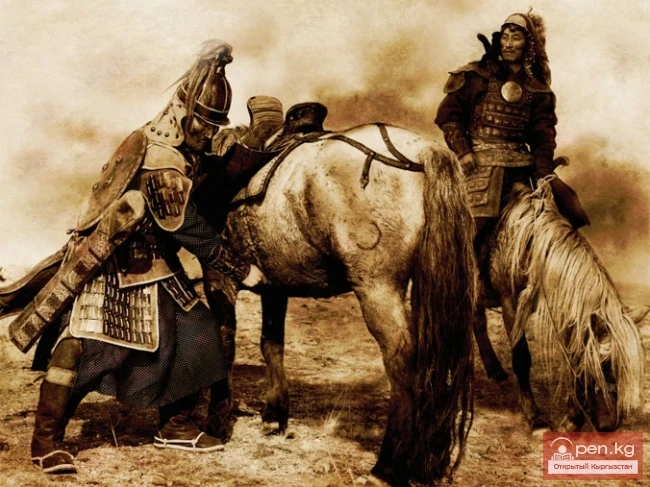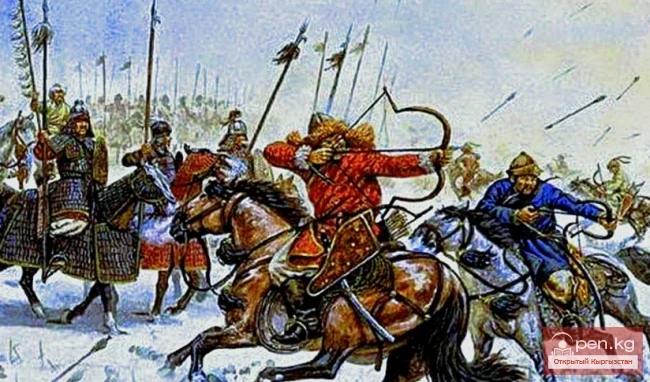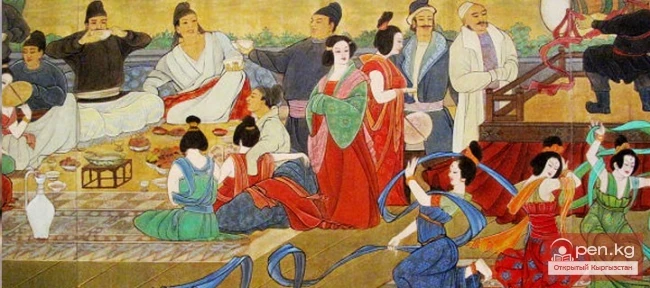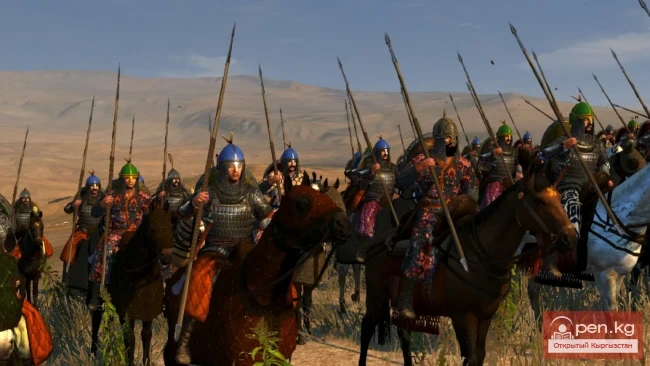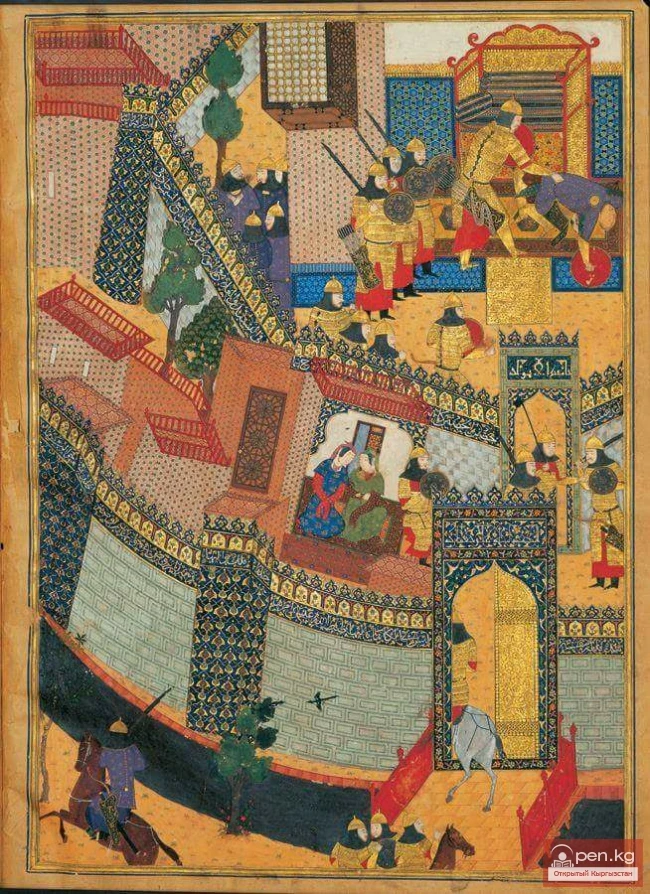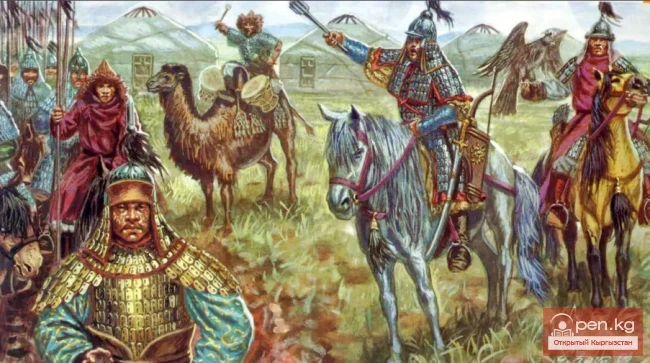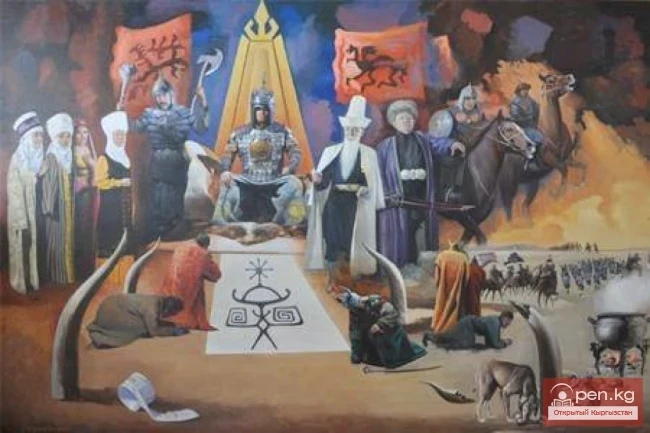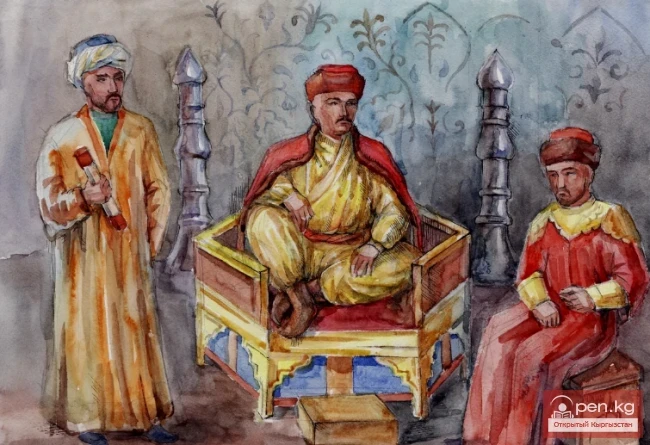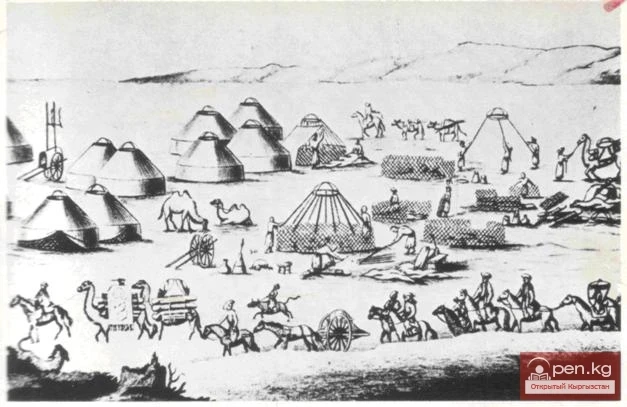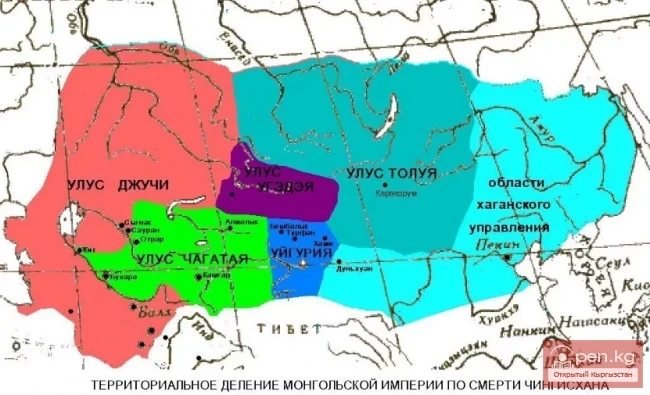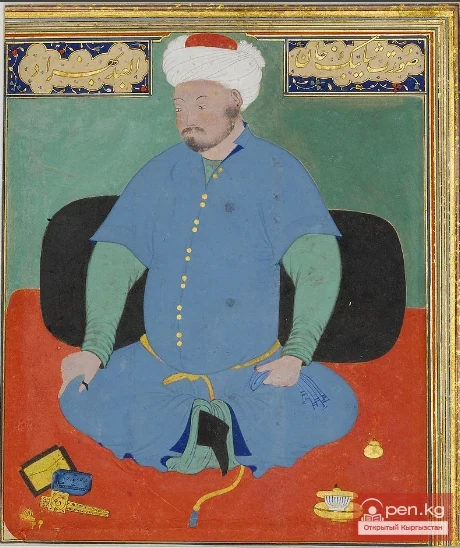This work by Abu-l-Ghazi (1603—1664) is based on legends about the genealogy of tribes and the works of predecessors.
Shah-Mahmud Churas. Chronicle. Critical text, translation, comments, research, and indexes by O. F. Akimushkin. Moscow, 1976
There is very little information about Shah-Mahmud. He was born in the 1620s into a noble family of the Churas clan and died in the late 17th century. He received a good education and was proficient in Arabic and Persian. His work "Chronicle" was written in Tajik between 1673 and 1676 and is a valuable source for the late medieval history of Eastern Turkestan. It consists of two parts. The first part contains information from "Tarikh-i Rashidi" by Muhammad Khanda, which does not present significant scientific interest. The second, original part is based on the author's personal observations, information from witnesses, participants in the described events, and oral traditions. The "Chronicle" is a primary source on the history of the Mughal state in the second half of the 16th to 17th centuries. At the same time, it contains original information on the history of neighboring lands and peoples: the Kyrgyz, Oirat-Kalmyks, Uzbeks, and Kazakhs. Below are excerpts about the Kyrgyz.
Translation from Persian
Text: A narrative about the outcome of the affair of "Abd al-Latif Sultan" and the campaign of "Abd ar-Rashid Khan" to avenge the blood of his beloved son Abd al-Latif Sultan.
When the khan's state was consolidated, Abd al-Latif Sultan settled in Aksu. At the same time, the khan's son was a brave and courageous man, and he properly kept Moghulistan under control, so that the Cossacks and Kyrgyz could not remain in Moghulistan. Eventually, Abd al-Latif Sultan attacked the Cossack Khan Hakk-Nazar; they (the troops) captured a large number of prisoners and abundant loot.
Hakk-Nazar Khan, gathering the Cossacks and Kyrgyz, set out to pursue them. The Sultan, not caring about the enemy, indulged in merriment and pleasures. Hakk-Nazar Khan, along with six other princes, caught up with the Sultan. Takhtamish-Yiruk, who came from the Balikchi tribe, had previously gone to the rear guard. He spotted the enemy but, without warning the Sultan, fled. The Cossack and Kyrgyz troops suddenly attacked the Sultan's camp at night and defeated his army. The mortally wounded Sultan was taken to Hakk-Nazar Khan. Hakk-Nazar Khan honored him with (appropriate) respect. Abd al-Latif Sultan consented to move from this mortal world to the heavenly meadows of eternity.
Pursuing the enemy, the troops (of Abd ar-Rashid Khan — O. K-) traveled for three months and caught up with Hakk-Nazar Khan in Emile. Hakk-Nazar Khan, the other princes, and the Kyrgyz fortified themselves in a difficult-to-access place. The siege dragged on. One day, the khan... led his horse ahead of all.
All the troops simultaneously urged their horses and, with all their might, defeated Hakk-Nazar Khan. Captured Hakk-Nazar Khan and the other princes were killed, and the Kyrgyz emirs were also taken prisoner. But Abd ar-Rashid Khan inflicted a great defeat on the army of the Shiban Cossacks and Kyrgyz, and the results of this victory are felt to this day.
Comments and notes
1 Abd al-Latif Sultan — the elder son of Abd ar-Rashid Khan, son of Sultan-Said Khan, the founder of the Mughal state in Eastern Turkestan. Abd al-Latif was the hakim of the city of Aksu during his father's lifetime.
2 Abd ar-Rashid Khan (939—967/1514—1560), like his father Sultan-Said Khan (920—939/1514—1533), organized a number of campaigns north of Kashgar to subjugate Moghulistan, but they ended in plundering that region.
3 This report by Shah-Mahmud does not correspond to historical reality. Abd al-Latif organized five campaigns north of Aksu and returned with plundered wealth.
4 Hakk-Nazar Khan, son of Qasim Khan, inherited from his father around 930/1517—18.
5 Balikni (balikchi) — judging by the ethnonym, a Turkic tribe. Due to the death of his son, Abd ar-Rashid Khan severely punished the Balikchi tribe. The Kazakh scholar V. P. Yudin lists among the tribes in the composition of the Kyrgyz those clearly Mughal and common with Mughal elements, including the Balikchi.
6 Regarding the cause of his death, Mahmud ibn Wali reports: "Abd al-Latif Sultan attacked the Kazakhs and Kalmyks from Aksu and scattered the property and livestock of the people in a whirlwind of plunder and devastation. Since these (his) actions crossed all boundaries, the Kazakhs and Kyrgyz came to a mutual agreement..." (Shah-Mahmud Churas. Reference, p. 264. Note 51).
7 Emile — the name of a river flowing into Lake Ala-Kul, and the valley at its lower reaches.
8 Other authors also write about this campaign of Abd ar-Rashid against Hakk-Nazar Khan: according to Mahmud ibn Wali, Abd ar-Rashid Khan, upon receiving news of his son's death, hastily set out against the Kazakh Khan Bui-lash in the Issyk-Kul basin, who fled.
Rashid Khan pursued him for 20 days and finally caught up with Bui-lash Khan, decisively defeating the Kyrgyz and Kazakhs; an anonymous author of the "History of Kashgaria" recounts that Rashid Khan defeated the Kyrgyz and Kazakhs in the Artysh area, their leader Hakk-Nazar Khan was killed in captivity; according to Tazkireip, Khoja Muhammad Sharif Rashid Khan caught up with the Kyrgyz at Issyk-Kul and defeated them after twenty days of battles; a contemporary of these events, Muhammad Haider, also reports on Rashid Khan's victory over the Kyrgyz and Kazakhs (Shah-Mahmud Churas, p. 266. Note 58). Interestingly, according to Shah-Mahmud's account, captured Hakk-Nazar Khan and all Kazakh princes were killed, while the Kyrgyz emirs remained alive. For some unknown reasons, they seem to have been forgiven and released.
